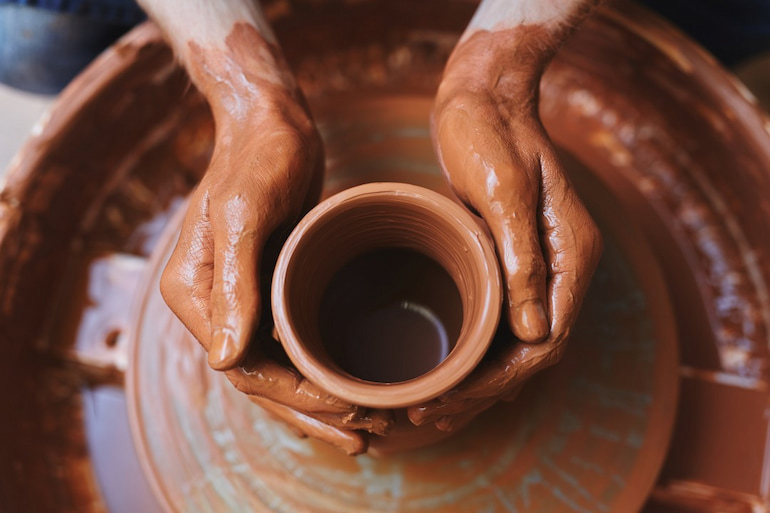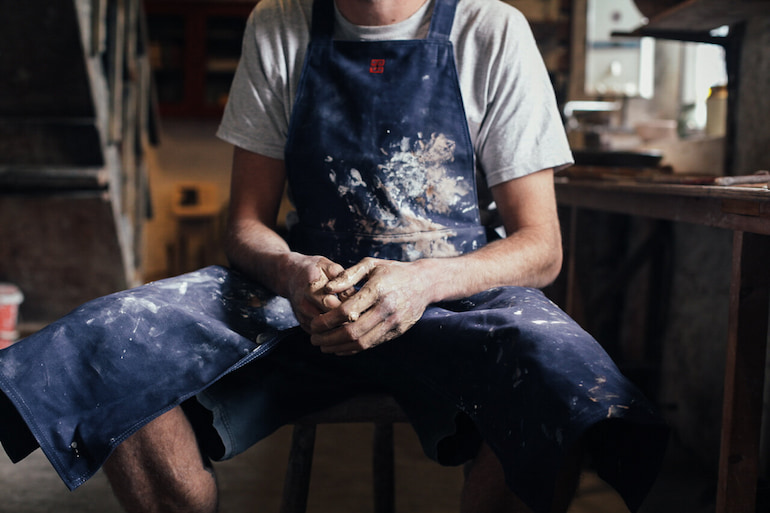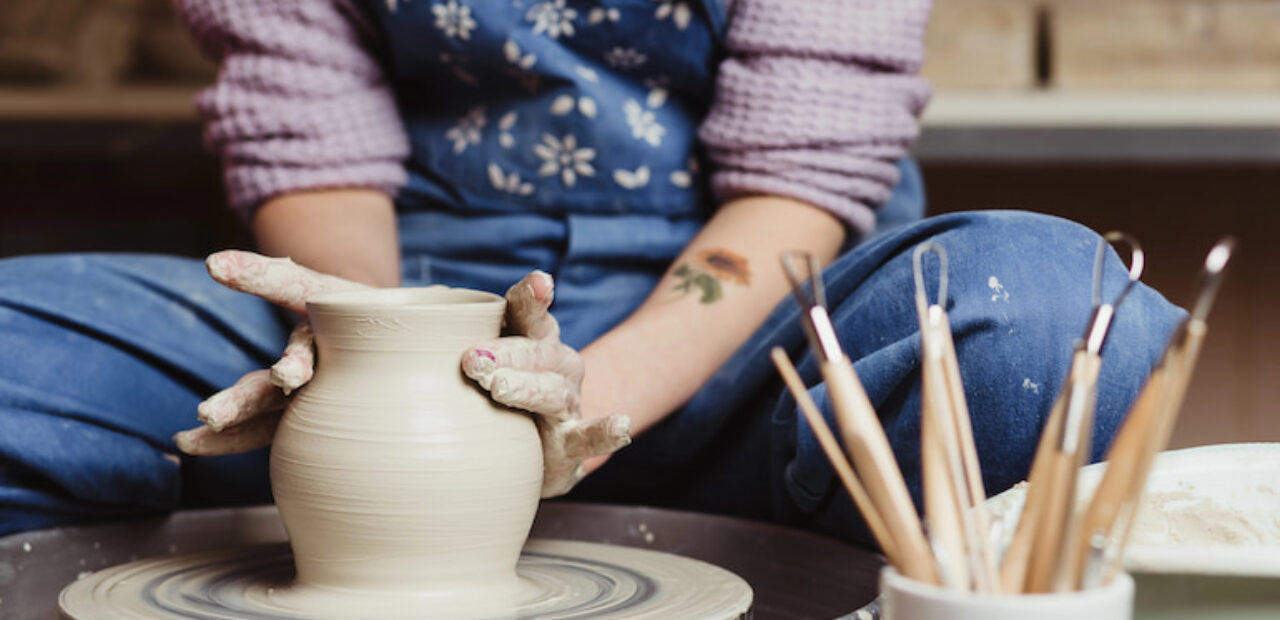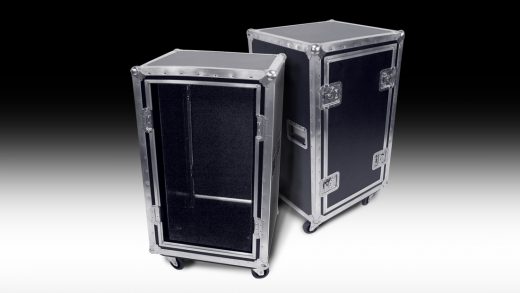Crafting with Clay: Essential Pottery Tools for Beginners
Delving into the world of pottery and crafting can be an exciting and fulfilling journey. The idea of shaping a mouldable material into an object that you can proudly display or even use sounds enticing. However, for beginners, acquiring the necessary tools for this venture can be a daunting task.
Whether you aspire to craft delicate sculptures, functional vessels, or decorative pieces, having the appropriate tools will significantly enhance your pottery experience. That said, to ease this transition and help you fully immerse yourself in this new craft, it’s important to understand the essential tools that will enable you to embark on your pottery journey with confidence.
Contents
What Clay is Best for Beginners?
As you begin your pottery journey, selecting the right material becomes a pivotal decision that shapes your creative process and learning curve. Fortunately, you can find a wide array of versatile and malleable clay, including heritage formulas and innovative variations, available for purchase online. Online platforms, art supply stores and pottery supply stores offer convenience and access to a diverse selection of materials suitable for beginners, allowing you to explore, experiment, and find the product that resonates most with your artistic vision and working style.
Among the various types available, a versatile and forgiving option recommended for novices is mid-range stoneware. It possesses significant qualities that make it an ideal choice for beginners. It’s notably more forgiving than some specialised clays, offering a balanced mix of plasticity, workability, and durability. This type of material allows beginners to explore various hand-building techniques, wheel throwing, and sculpting without excessive challenges.
Its moderate drying time offers a good balance for learning different pottery methods, allowing beginners enough time to work on their pieces without feeling rushed. Moreover, mid-range stoneware typically fires at a temperature between cone 4 to cone 7 (approximately 1185°C to 1285°C), making it compatible with both electric and gas kilns, serving as a versatile choice for beginners who might have access to different firing methods.
Earthenware options are often recommended for beginners in pottery due to their favourable characteristics and firing requirements that align well with the learning process. They offer excellent workability, being softer and more pliable compared to other types. This quality is advantageous for beginners who are learning shaping and moulding techniques, especially in hand-building.
Similarly, porcelain clay, despite its reputation for being more challenging to work with due to its fine texture and higher firing temperatures, can also be suitable for beginners. Porcelain offers a smooth, refined finish and allows for intricate details, making it appealing for those exploring delicate forms or intricate designs. However, due to its fine particle size and higher firing temperatures, porcelain can be less forgiving than earthenware. It requires more precise handling to avoid warping or cracking during drying and firing.

Pottery Wheel
The pottery wheel serves as the heart of wheel-thrown pottery, dictating the rhythm and precision of creating vessels. As a novice, selecting the right wheel involves considering key factors: stability, size, and functionality. Opt for a sturdy wheel base that minimises vibrations, ensuring steady control as you learn.
A wheelhead size compatible with your intended pottery sizes allows versatility. Consider ease of speed control and direction changes for smooth shaping. Above all, seek a wheel that resonates with your comfort level and facilitates your learning curve, offering a balance between affordability, functionality, and durability to support your evolving pottery journey.
Basic Pottery Tools
As a novice in pottery, acquiring essential tools can greatly enhance your crafting experience. Among these, needles are indispensable for scoring and detailing your creations, while wires aid in cutting and releasing pottery from the wheel. Ribs, available in various shapes and materials, assist in shaping and smoothing surfaces. Brushes serve multiple purposes, from glazing to intricate detailing. Trimming tools are essential for refining and shaping pieces post-throwing. Sponges, crucial for maintaining the right moisture and cleaning excess clay, aid in shaping and smoothing surfaces.
These tools form the foundational kit for beginners, offering versatility in shaping, detailing, and refining pottery creations. Starting with these essentials ensures you’re equipped for the various pottery techniques and allows you to delve into the art of pottery crafting with the necessary instruments to shape your creative vision into tangible forms.
Work Surface
A suitable work surface is crucial for pottery as it provides stability and space, allowing for efficient hand-building or wheel-throwing techniques. A sturdy table or workbench, preferably at a comfortable height, helps maintain control while crafting. Additionally, surfaces like plaster bats or canvas-covered boards offer ideal texture for manipulation. Choosing an appropriate work surface ensures a supportive foundation for your pottery endeavours, facilitating a more enjoyable and productive crafting experience.
Pottery Apron and Towels
You should also consider acquiring a pottery apron and towels to ensure an enjoyable and efficient pottery experience. A pottery apron shields your clothing from splashes and stains, preserving your attire during creative sessions. Towels serve multiple functions, from keeping your hands and tools clean to maintaining a tidy workspace.
These accessories are indispensable, offering protection, cleanliness, and convenience. They help keep your hands and tools dry, ensuring a neater workspace, and fostering a more focused and enjoyable pottery session. Plus, they extend the longevity of your clothing while contributing to a clean and organised work environment.

Storage Containers
Selecting appropriate storage containers is pivotal, especially if you plan on selling your pottery. Opt for containers providing ample space and reliable protection to ensure your pieces remain safe from breakage or damage during transportation or storage.
Materials like cushioned cardboard boxes or lined plastic bins prevent chipping or cracking. Also, consider organising the labelled containers to achieve easy access and presentation. The right storage containers not only protect your creations but also preserve their quality, essential for showcasing or selling your pottery with confidence and professionalism.
Kiln or Access to Firing Services
Access to a kiln or firing services is vital in pottery. A kiln serves as the pivotal element in transforming crafted creations into durable ceramic pieces. Firing at specific temperatures solidifies forms and sets glazes, leaving items functional and enduring.
Whether you buy a kiln or decide to use firing services at studios or community centres, it’s indispensable for completing the pottery process. Without proper firing, your creations will remain fragile and unfinished. Acquiring a kiln or securing firing services ensures the transformation of crafted pieces into resilient and usable pottery, marking the crucial final step in the artistic journey of pottery making.

















